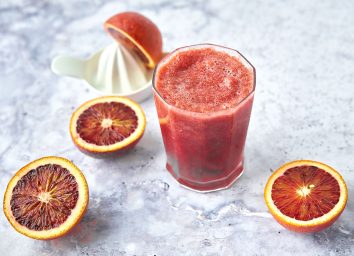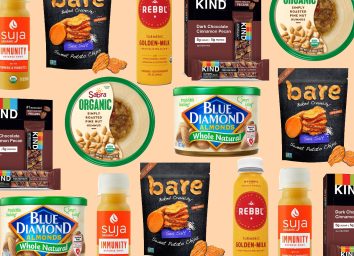7 Foods That Cut Your Covid Risk, According To Dietitians
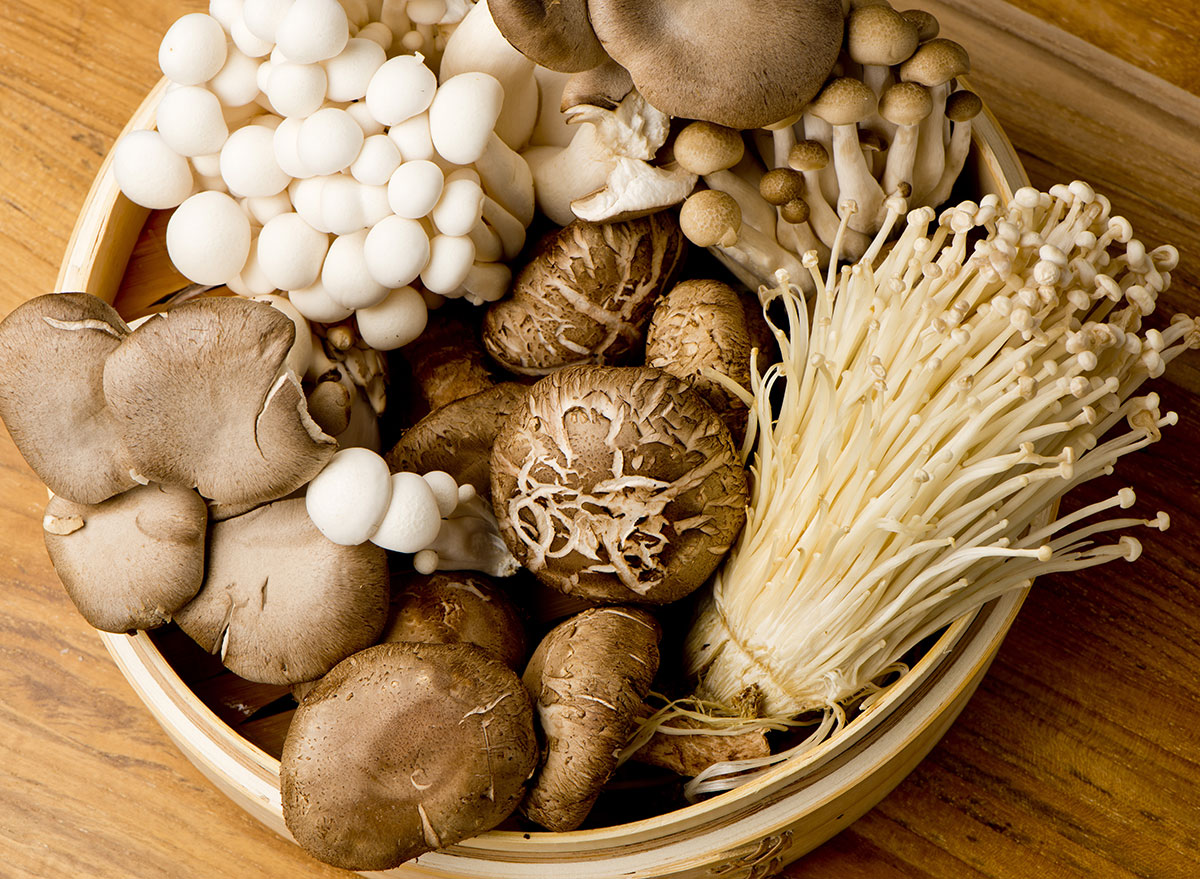
COVID-19 is now associated with at least 98 symptoms, some of which you never want to experience, and others that may not go away. Unfortunately, it's currently not possible to make yourself immune to the virus that causes COVID-19, even if you've already had it. So it's crucial to know what you can do right now to cut your COVID risk as cases continue to spike.
It's important to steer clear of these 100 worst foods for cold and flu and these 20 foods that are surprisingly hard on your immune system, and instead, eat in a way that supports the hard work your immune system has to do this winter. According to registered dietitian Elisa Bremner, that means limiting processed foods, eating in moderation, and partaking in any or all of the following "super-immune boosters." (Related: The 7 Healthiest Foods to Eat Right Now.)
Mushrooms

Mushrooms have a longstanding reputation for supporting immune function, and lately, their name has been coming up in scientific literature that addresses foods that help cut COVID risk. Not only are mushrooms linked to increasing the number and strength of the body's immunity-boosting T-cells, but they're also one of the only natural food sources of vitamin D, according to Bremner. Vitamin D is one of just two vitamins infectious disease expert, Dr. Anthony Fauci has said he bothers supplementing in an effort to cut his own COVID risk.
In addition, Bremner points out that shitake mushrooms, in particular, are a good source of zinc, a mineral that's crucial to immune system function.
Red bell peppers
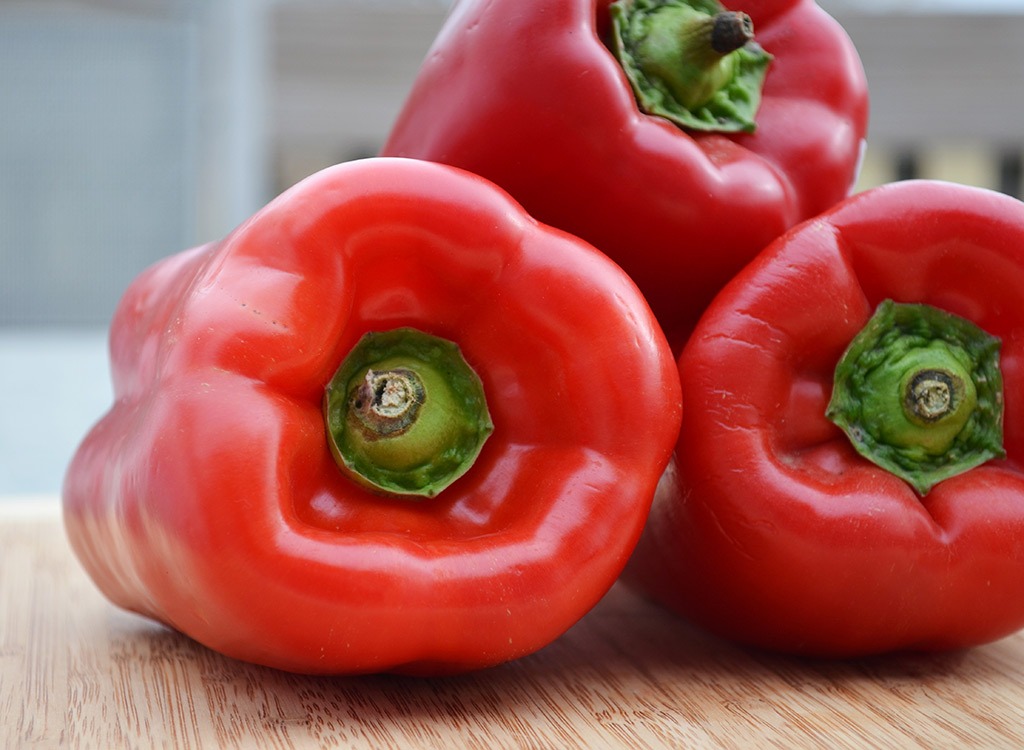
Dr. Fauci has also been supplementing vitamin C because, as he says, it's a good antioxidant (which means, among other things, that it helps combat free radicals in your body, which can contribute to disease). However, if you want to maximize the vitamin C you can get from your diet, Bremner suggests slicing up some red bell peppers and adding them to, well, everything.
"Most people, when they think of vitamin C, think of citrus," Bremner tells Eat This, Not That!, "but peppers are packed with even more."
Garlic

Garlic has a long history as an herbal remedy and has been cited by many experts in many studies for its immune-boosting properties. "Among other things, garlic contains a component called allicin, which is not only antibacterial but also anti-inflammatory," according to Alicia Galvin, Resident Dietitian for Sovereign Laboratories>.
Ginger
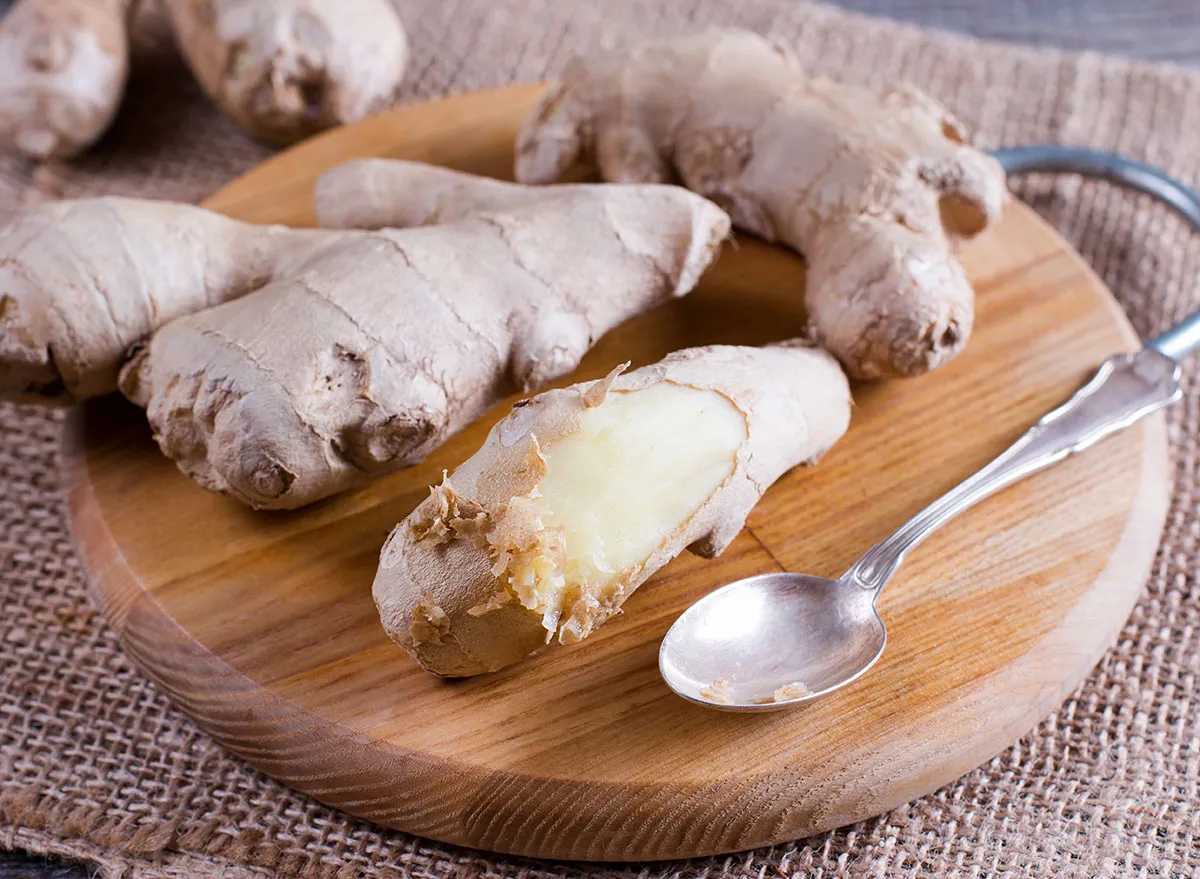
Ginger's anti-inflammatory properties can help lessen the upper-respiratory symptoms that are associated with COVID-19. "When you eat ginger, you can feel that heat and you know it's fighting," observes Bremner. While there hasn't been a ton of research into ginger's antiviral properties, we know it fights hard against bacterial threats. And perhaps more importantly, research suggests ginger can help control high blood pressure," which poses a significant risk to people who do end up getting COVID-19.
Broccoli
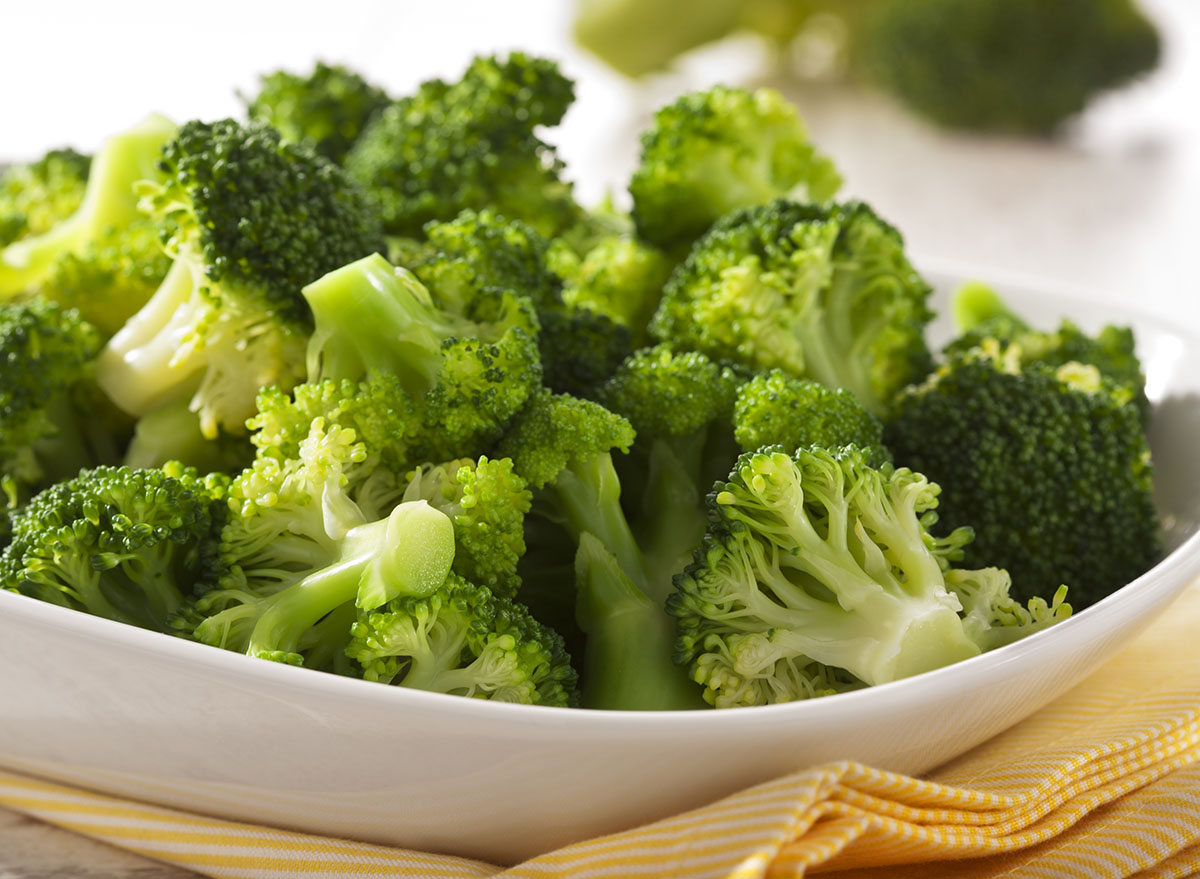
Broccoli is basically the standard-bearer when it comes to superfoods, Bremner tells Eat This, Not That! "You can't beat its combination of vitamins A, C, and E, all of which are known to help boost immune function. Vitamin A, in particular, may help cut your risk of COVID-19, Bremner points out, in that it supports healthier internal tissues, including the lining of the respiratory tract. And as an extra-added bonus, vitamin A may be instrumental in helping you lose weight this winter.
Yogurt
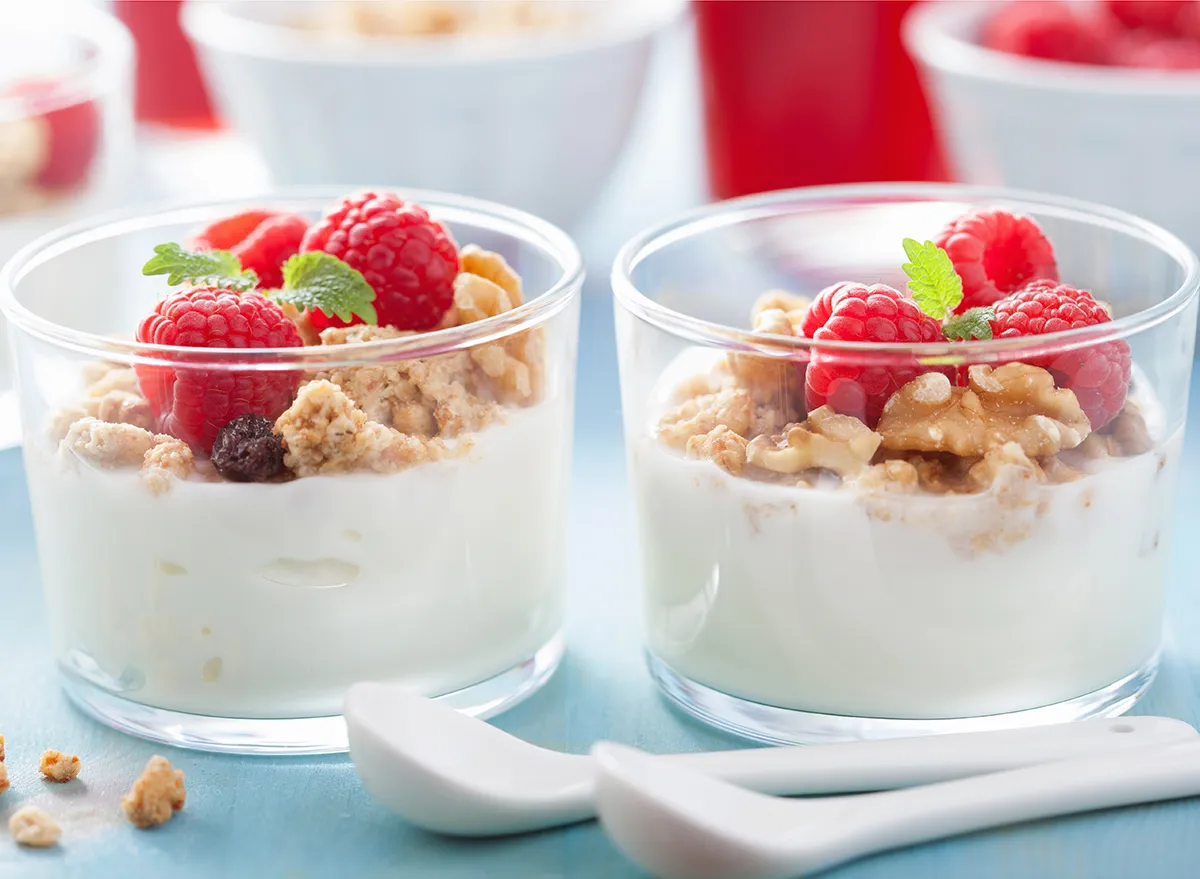
Yogurt is rich in protein, vitamins, and trace elements, all of which are necessary for maintaining optimal immune response. Perhaps more importantly, yogurt is a great source of probiotics, which help support the gut microbiome, which is, itself, critical to supporting immune function, according to Bremner. Bonus points if you select Greek yogurt, which is even higher in protein than other yogurts.
Sauerkraut

Sauerkraut is another food that supports the immune system via the gut microbiome. What makes sauerkraut so powerful as an immune system supporter, according to Galvin, is the fact that it is fermented. Fermented foods are a great source of good bacteria for the gut. In addition, fermentation enhances the antioxidant properties of the cabbage sauerkraut is made from.
Cut your COVID risk even further by wearing a mask and avoiding these 33 places you're most likely to catch COVID. Subscribe to our newsletter to get the latest healthy eating news.
